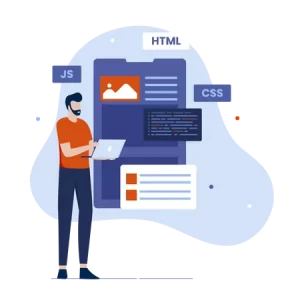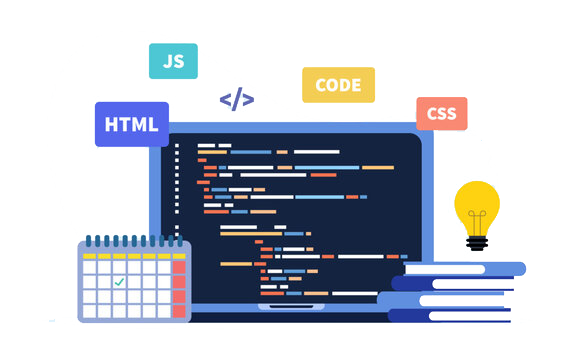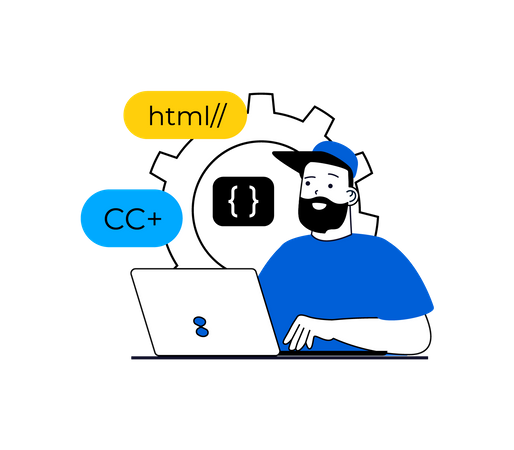
The Duties of Front End Developers
The Duties of Front End Developers: In the dynamic world of web development, front-end developers are the wizards responsible for creating fluid and visually appealing user interfaces that captivate users. To create the digital landscapes we utilize on a daily basis, these techno magicians are indispensable. In this blog, we’ll debunk the misconception about front-end developer responsibilities and explore the interesting space where creativity and code meet.
Front end developers are the architects of the web; they create the user experience framework using their knowledge of HTML, CSS, and JavaScript. HTML organizes the information, CSS styles it and JavaScript provides interaction. Together, these languages create a stunning symphony that forms the foundation for captivating websites and applications.


Making ensuring the experience is seamless across devices is one of the primary responsibilities. To engage users, front-end developers design interfaces that adapt smoothly to various screen sizes. The secret is to design layouts that work well on a variety of platforms, such as computers and cellphones, and are also aesthetically beautiful.
People use a wide range of browsers, and the digital world is no exception. To ensure that their creations function flawlessly across a range of browsers—Chrome, Firefox, Safari, and other favorites included—front-end developers labor like sorcerers to guarantee that customers receive a stable and consistent experience.


The look and feel of a website or application are the responsibility of front end developers. Together, they and UX designers turn wireframes into visually beautiful and intuitive user interfaces. The aim is to captivate consumers in order to facilitate enjoyable and productive interactions with the product.
Expert users of Git and other version control systems, such as GitHub, are front end developers. They may now collaborate with other developers with ease, monitor code modifications, and gently go back to previous versions as necessary.


A seamless and rapid user experience is essential. Front-end developers use file size reduction, image optimization, and browser caching as performance optimization techniques to ensure that websites and apps load quickly and efficiently.
Front-end developers weave a spell of inclusivity by making sure their products are useable by individuals of all abilities. They adhere to accessibility standards, ensuring that websites and applications are usable and navigable by individuals with disabilities.


Front-end developers should continually be learning new things since the digital world is continuously changing. They are always honing their skills and becoming captivated with the newest tools, frameworks, and libraries in order to keep abreast of industry trends and deliver cutting-edge experiences.
The masters of web development, front-end developers combine design and code to produce visually striking user interfaces. Their duties are as diverse as the digital landscape itself, including everything from the basics of HTML to the intriguing fields of user experience and responsive design. As technology advances, front-end developers are at the forefront, working magic to mold the digital experiences of the future.

